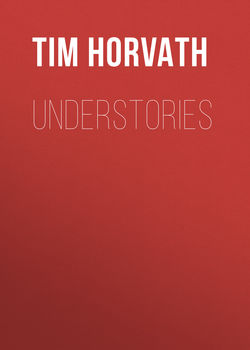Читать книгу Understories - Tim Horvath - Страница 10
На сайте Литреса книга снята с продажи.
Urban Planning:
ОглавлениеCase Study Number Two
All that about apples not falling far from the tree—shit, that. I know; I tumbled ass-first earthward and fell where I fell, and where I fell, I rolled, only then recognizing how rounded parts of me must have been. I wound up whole deserts from Morrisania, deserts that gleamed and those dull as obverse mirrors, deserts lush with indifference and misinformation. If sand can turn to glass without human ordination, surely that was what had happened here time and time again. I passed shards that had never been part of anything larger than themselves, whose only shot at survival was to stow away in passing flesh, lodging in soles and ankles that no longer could tell agony apart from ordinary touch.
But when at last I arrived in Delagotha, how I longed for those distances, their quaint assimilations of glass. Immediately past her gates, I was accosted by stacks of marketplaces where smaller marketplaces were for sale, themselves selling nothing other than still-smaller marketplaces. This regress wasn’t infinite—sure, it took many purchases, but eventually you’d arrive at the “atoms”—the goods—and you’d tremble at the prospect of dropping one and losing it forever.
All the while, getters, the closest thing the city had to beggars, moved hither and thither with the compulsive synchronicity of zebra finches or a crew team at break of day. They bounded off one another’s shoulders in a choreography of beguilingsignals. Finally, I just asked one what it all meant. It was not what was said, he insisted, turning his stubble-ridden face aside as if speaking to someone beyond me. No, it was what was on their breath when they spoke that delineated meaning. That depended largely on what they’d eaten most recently, which hinged, in turn, on what had tumbled their way—thrice-scorched crescent breads, globules of the sweet balm gondoliers slather on their cankers, the cankers themselves, and, for the luckiest only, the city’s famed tomatoes, in which succulent pulp and ceramic likeness lie spooning like lovers.
Like a kid with a new decoder ring, I boarded one of Delagotha’s octens of rails, which plunge, capillarylike, improvising their routes as they go, bearing passengers to destinations that they’ll be convinced in retrospect they’ve chosen. So it was breath and odors I should attend to. I sniffed, hoping for caramel but bracing for something fetid. Nothing—smell reduced to a nullity. Instead, socketed into a sheer mesh of interlocking elbows, I felt the skin of my fellow commuters, a blind man’s brothel of textures that mocked endings and beginnings like objects of a misplaced nostalgia.
It was then that I first noticed the assembly of musicians who’d begun to jostle the crowd at its fringes. I tried to observe them. Their musical extrusions acted like they were sentient, jostling for attention and dominance. Some performers spewed their notes into the fray, as if trying to edge out those emanating from their fellow musicians. Others stacked chords and arpeggios, forging walls and stairways for other notes to climb on. Still others dispatched castanet shoes that tripped notes but somehow left passengers standing. I wanted to plug my ears. I worked my hand upward through the thicket of limbs, but a G7 chord slapped it away, taking down my glasses, too. I groped, but I couldn’t even get near the floor, where, unless a getter had snagged them in midair, they must have tumbled.
I was mystified, as I would be those early weeks. How was it that no one in Delagotha complained about these suffocating crowds, this steady bombardment, this all-at-onceness? How could a place persist under such conditions? Why didn’t its citizens unite their voices and demand respites—parks, plazas, sound-swallowing walls? And yet I was stunned at how easily and smoothly I was able to get along without the glasses, girded by the flesh of those around me. Slowly, eventually, it started to dawn on me: five senses was madness, four mild insanity, three delusion, two wrongheadedness, and one, quite simply, ideal. In Delagotha, they’d learned to burrow into a single sense at a time, dwelling utterly there, and thus treading calmly and rationally amidst pandemonium.
